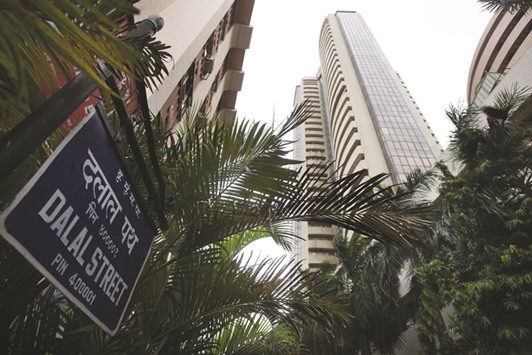Indian stocks rose for a sixth day, taking the benchmark index closer to a bull market, as energy companies and industrials climbed on optimism an improving economy will bolster corporate earnings.
Oil and Natural Gas Corp (ONGC), the largest state-run explorer, was among the best performers on the S&P BSE Sensex.
Tata Motors, owner of Jaguar Land Rover, climbed to a one-week high. State Bank of India (SBI), the nation’s biggest, rallied to a six-month high, while ICICI Bank extended last week’s 4.1% climb.
The Sensex closed 0.49%, or 133.85 points, higher at 27,278.76, while the Nifty 50 closed 0.51%, or 42.35 points, higher at 8,370.70.
The Sensex is within 1% of entering a bull market. Foreigners bought $771mn in local stocks in June, a fourth month of net inflow, as earnings recovered after falling in four of the previous five quarters and the government stepped up measures to boost growth.
A rebound in global equities after central bankers signalled looser monetary policies to buffer the impact of Britain’s referendum has bolstered investor sentiment, according to Angel Broking.
“If corporate earnings show signs of sustaining revival in this quarter, and if the GST (Goods, and Services Tax) bill is cleared by Parliament, investor sentiments will remain positive,” Mayuresh Joshi, head of institutional sales at Mumbai-based Angel, said in an interview with Bloomberg TV India on Monday. “Markets have brushed off Brexit fears and there are no expectations of the US Fed raising rates in July. That’s rubbing off on our markets.” The Sensex has climbed 19% from a low in February, approaching the 20% threshold for a bull market. The rally has been powered by forecasts for above-normal rainfall after back-to-back droughts and data showing the country expanding faster than all other major economies.
Last month, the gauge completed its best quarter since Prime Minister Narendra Modi’s election victory in May 2014, as the government eased rules on foreign direct investment, approved a new mining policy and said it would seek to pass a constitutional amendment authorising the goods-and-services tax in the Parliament session starting 18 July.
The advance has pushed up the Sensex’s valuation to 16.4 times projected 12-months earnings, compared with a five-year mean of 14.3 and a multiple of 12.1 for the MSCI Emerging Markets Index, data compiled by Bloomberg show.
Meanwhile the rupee yesterday strengthened for the fourth consecutive session against the US dollar, after local equity markets gained for the sixth consecutive session. The currency closed at 67.27, up 0.07% from its previous close of 67.32. The local currency opened at 67.22 and touched a high of 67.15 a dollar, a level last seen on June 17.
The Reserve Bank of India (RBI) is prepared to deal with any volatility stemming from expected outflows on account of maturing foreign-currency deposits, said HR Khan, the central bank’s outgoing deputy governor for markets, according to a Bloomberg report. So far this year, the rupee is down 1.66%, while foreign institutional investors (FIIs) have bought $2.96bn in equity and sold $1.92bn in debt markets.

The Bombay Stock Exchange building is seen in Mumbai. The Sensex closed up 0.49% to 27,278.76 points yesterday.
